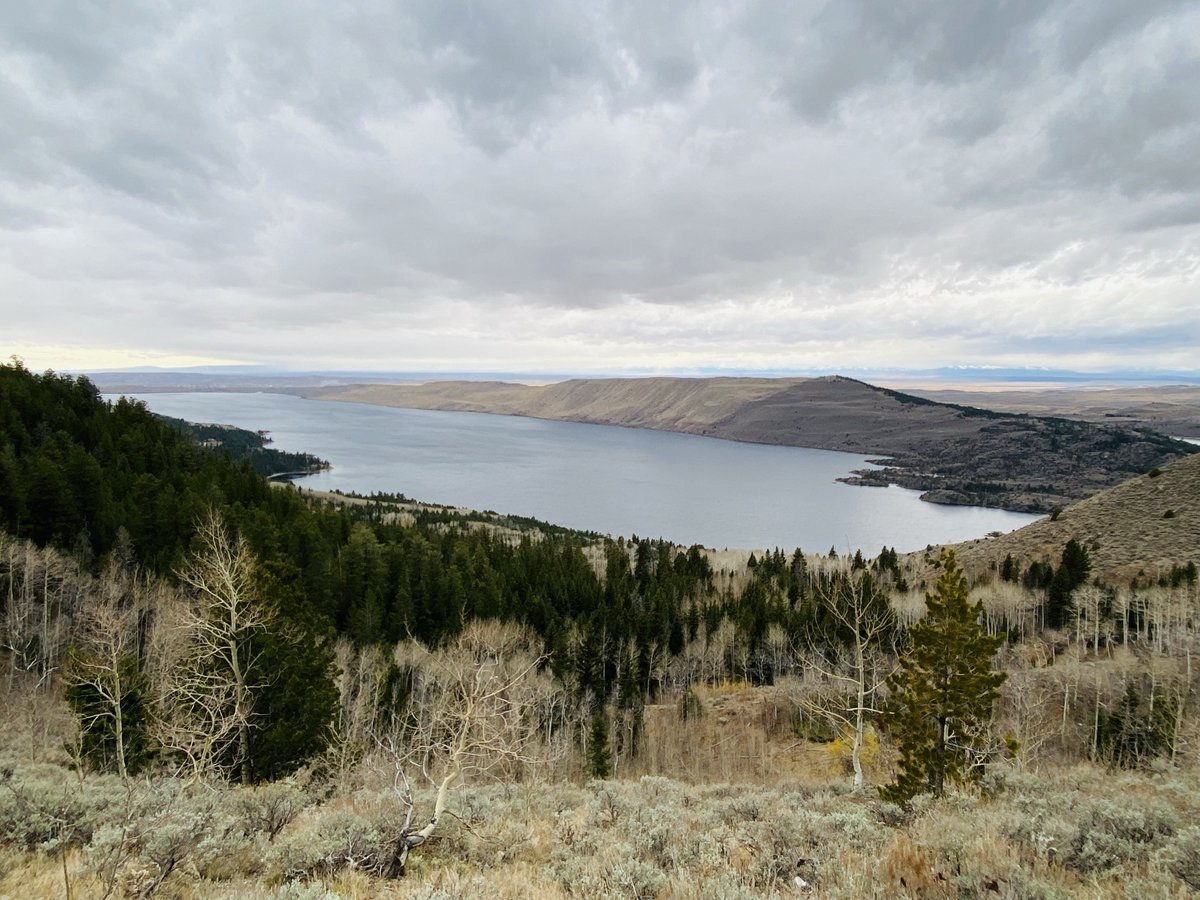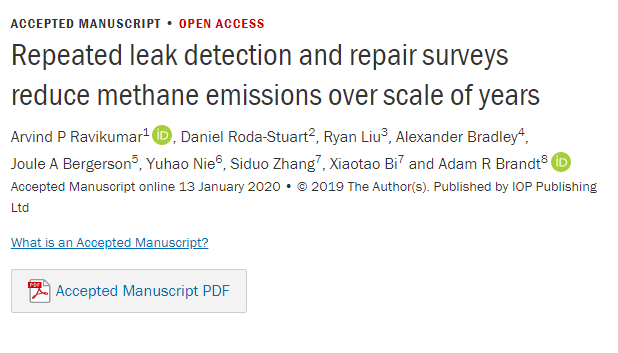
I'm out here in WY near the Wind River Range to measure #methane emissions. As I write this, EPA is working on releasing updated methane regulations.
Let me tell you why this is not necessarily bad news. A thread on the complexity of #methane accounting: 1/
Let me tell you why this is not necessarily bad news. A thread on the complexity of #methane accounting: 1/
https://twitter.com/JarrettRenshaw/status/1452717098061422592

First, why is #methane fee a great idea? Recent data show that #methane emissions from operators vary by many orders of magnitude. So it makes sense that under a fee, responsible operators will be rewarded and those with high emissions will be penalized.
https://twitter.com/arvindpawan1/status/1135586554414600192?s=20
So, what's the issue with BBB proposal? Fee is entirely based on self-reporting to EPA GHGRP. 2 problems:
1) Emissions are underestimated in EPA report
2) Only facilities >25000 CO2e required to report
This sets up potential for fraud as it's easy to reduce emissions on paper.
1) Emissions are underestimated in EPA report
2) Only facilities >25000 CO2e required to report
This sets up potential for fraud as it's easy to reduce emissions on paper.

Now, there are ways to fix this by updating EPA reporting protocols. We even wrote a paper on how to do it. But until the reported inventory accurately reflects actual emissions, a #methane fee based on the inventory will not work as intended.
https://twitter.com/arvindpawan1/status/1423301987416907777?s=20
So, how should we do a #methane fee properly?
We know several things about methane:
1) Super-emitters are a huge issue - need to find them quickly.
2) Large emissions can also be intermittent - you always need to be on the lookout.
2) Emissions vary significantly over time
We know several things about methane:
1) Super-emitters are a huge issue - need to find them quickly.
2) Large emissions can also be intermittent - you always need to be on the lookout.
2) Emissions vary significantly over time
Thus, any effective #methane fee must be based on direct measurements. Multi-scale measurements are required:
1) Frequent surveys of all sites to estimate emissions.
2) Continuous sensors on sites to catch super-emitters.
Existing tech can do this. eartharxiv.org/repository/vie…
1) Frequent surveys of all sites to estimate emissions.
2) Continuous sensors on sites to catch super-emitters.
Existing tech can do this. eartharxiv.org/repository/vie…

But this has not been tested before. So, we are implementing a similar protocol to find out if we can use multi-scale measurements to accurately estimate emissions from each site, from each operator. It is possible, but we need the right measurements.
https://twitter.com/arvindpawan1/status/1403392971391840264?s=20
Until we can figure that out, flexible EPA regulations that allow for the use of new technologies is the way to go. That's exactly what the EPA is about to do! We even wrote how: pubs.acs.org/doi/abs/10.102…
To summarize,
1) Losing #methane fee is not all bad, EPA is on top of effective regulations.
2) A #methane fee without direct and frequent measurements is not worth the paper it's printed on.
3) We'll soon be able to undertake fee-based approach globally with new tech. /End
1) Losing #methane fee is not all bad, EPA is on top of effective regulations.
2) A #methane fee without direct and frequent measurements is not worth the paper it's printed on.
3) We'll soon be able to undertake fee-based approach globally with new tech. /End
• • •
Missing some Tweet in this thread? You can try to
force a refresh










